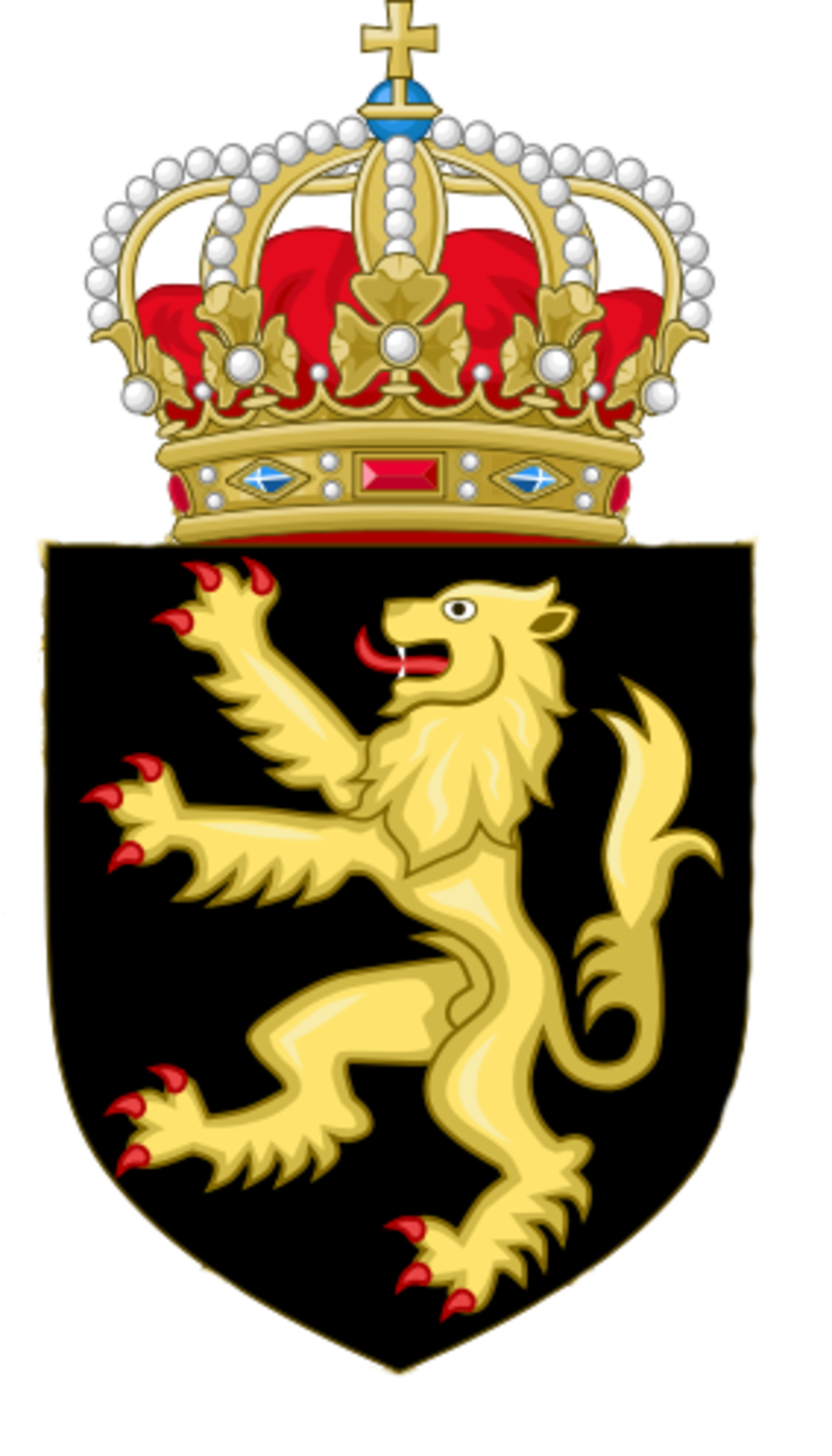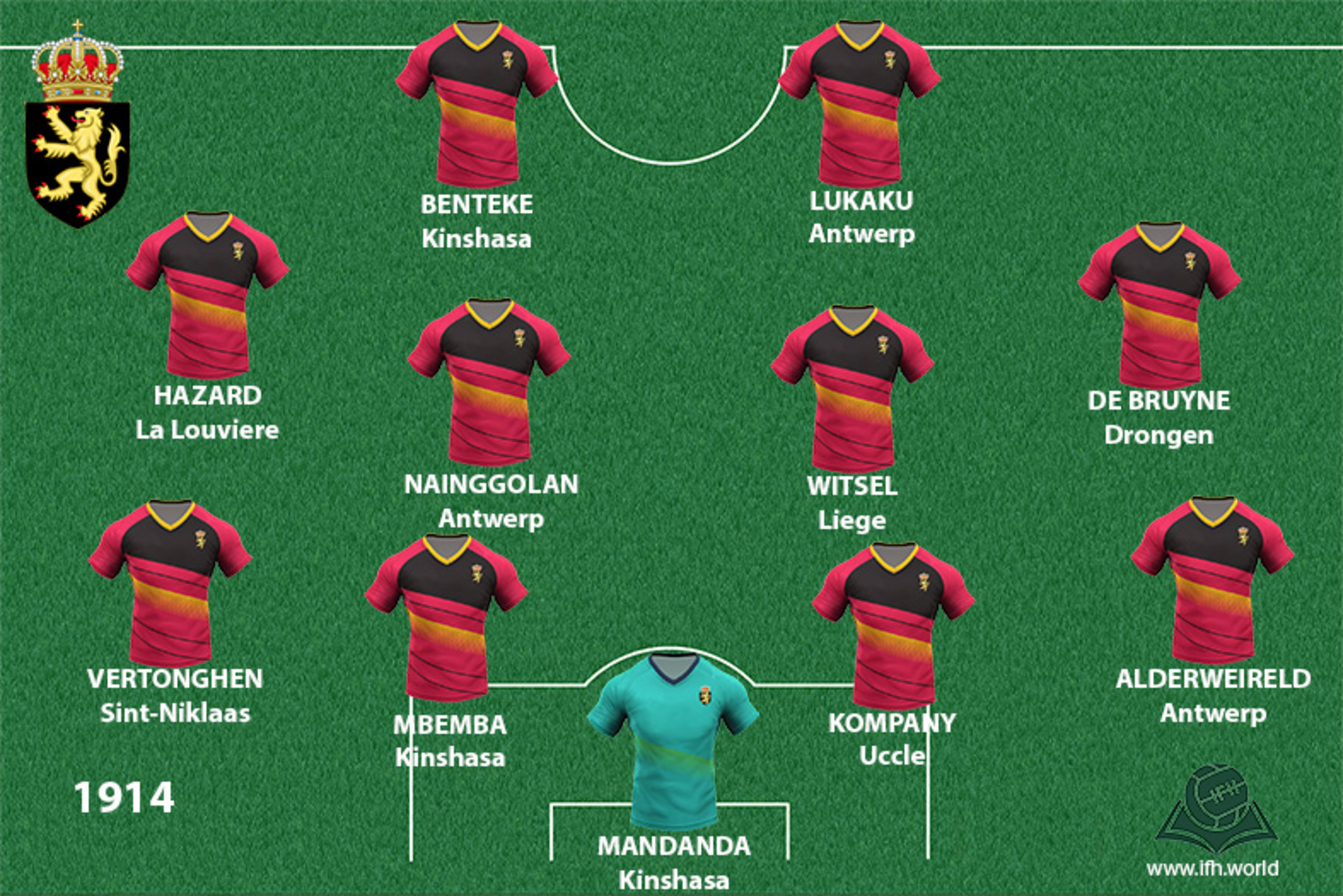The Kingdom Of Belgium
Belgium was created by isolation from the Dutch Kingdom (1830-39), encompassing a territory that until then was called Southern / Spanish / Austrian Netherlands. But in order to differentiate themselves from the state from which they separated, the insurgents took the name of Belgium, according to the former Roman province of Belgians, which partly covered the area.

Coat of arms
Shirt
| Position | First name | Last name | Mjesto rođenja | Like | Dislike | |
|---|---|---|---|---|---|---|
| GK | Steve | MANDANDA | Kinshasa |
2 |
8 |
|
| GK | Thibaut | COURTOIS | Bree |
18 |
2 |
|
| DC | Vincent | KOMPANY | Uccle |
15 |
0 |
|
| DLC | Jan | VERTONGHEN | Saaint Niklaas |
12 |
2 |
|
| DLC | Thomas | VERMAELEN | Kapellen |
5 |
1 |
|
| DR/MR | Thomas | MEUNIER | Saint Ode |
4 |
0 |
|
| DL | Jordan | LUKAKU | Antwerp |
2 |
1 |
|
| DC/DMC | Bjorn | ENGELS | Kaprijke |
2 |
1 |
|
| DMC | Gianneli | IMBULA | Vilvoorde |
2 |
0 |
|
| DMC | Youri | TIELEMANS | Sint-Pieters-Leeuw |
8 |
0 |
|
| DMC/DC | Leander | DENDONCKER | Passendale |
1 |
0 |
|
| MC | Axel | WITSEL | Liège |
3 |
1 |
|
| MC | Mousa | DEMBELE | Antwerp |
6 |
2 |
|
| MC | Radja | NAINGGOLAN | Antwerp |
9 |
0 |
|
| MC/SS | Marouane | FELLAINI | Brussels |
5 |
0 |
|
| MRLC | Dennis | PRAET | Leueven |
5 |
0 |
|
| AMRLC | Eden | HAZARD | Le Louviere |
20 |
1 |
|
| AMRLC | Kevin | DE BRUYNE | Drongen |
23 |
0 |
|
| AMRL | Yannick | CARRASCO | Bruxelles |
4 |
0 |
|
| FRLC | Divock | ORIGI | Ostend |
3 |
1 |
|
| FRLC | Dries | MERTENS | Leuven |
10 |
0 |
|
| FC | Christian | BENTEKE | Kinshasa |
2 |
1 |
|
| FC | Dieumerci | MBOKANI | Kinshasa |
3 |
0 |
|
| FC | Michy | BATSHUAYI | Bruxelles |
8 |
2 |
|
| FC | Romelu | LUKAKU | Antwerp |
12 |
4 |
(Today: Belgium, Congo, DR Congo)
In Belgium, after independence, a constitution was soon adopted which was not democratic but nevertheless excluded any possibility of arbitrariness by the Belgian king and the executive and enacted the principle of separation of the Church and the state. Belgium's domestic policy in the second half of the 19th century and the beginning of the 20th century will be marked by conflicts between the liberal and Catholic groups, especially over the problem of the influence of religion in education, and ultimately will end with the victory of the Catholic side.
Modern Belgium split from the beginning into the Flemish north with the Dutch language and the Walloon south with the French. Belgium became independent at the time of the ideal that the nation was associated with a particular language. However, the possibility of adopting French as the only language was rejected to highlight the difference between Belgium and its powerful neighbor France - in which only the French nation existed. In addition to language, there were social and economic elements that contributed to the deepening of the divide between the Flemish and the Walloon in the 19th century: unemployment among the Flemish was on the rise due to the decline of the textile industry and the general neglect of the collapsing economy by the authorities. Wallonia, by contrast, has experienced a period of economic growth with its economy based on the coal mining industry and the steel industry. Also, ideological differences were evident in the fields of party politics of that religion, Wallonia was more liberal and socialist, and Catholic Flanders conservative.
In the same period a long struggle for equality of the Flemish language (dialect of Dutch) with the French began, and since it was an industrially developed country, the rise of the labor movement and the Belgian Workers Party also began, which would trigger many strikes, which would become an integral part of political processes in the country. In foreign policy, in the 1880s, Belgium succeeded in acquiring its first colonial possessions, located around the Congo River in Central Africa, where the colonists exterminated the indigenous population. The breach of Belgian neutrality in 1914 by German forces (1914), in order to occupy a strategically important space in the invasion of France, would serve as a pretext for declaring war on Germany, which had already hung in the air for decades.
Sources
- Felipe FERNANDEZ-ARMESTO, Narodi Europe, Zagreb, 1997.
- Grupa autora, Povijest: Napoleon, restauracija i revolucionarna kretanja (1800 – 1848), knjiga XIII., Zagreb 200.
- Ulrike Vogl, Matthias Hüning (2010) ''One Nation, One Language? The Case of Belgium'', Dutch Crossing, 34:3,
- Grupa autora, Povijest: Kolonijalna carstva i imperijalizam (1871. - 1914.) , knjiga XV., Zagreb 2008.
- ''Gallia Belgica'', ttps://en.wikipedia.org/wiki/Gallia_Belgica#Belgica_as_the_name_of_the_Low_Countries
- ''History of Belgium'', https://en.wikipedia.org/wiki/History_of_Belgium
- Coat of arms: https://en.wikipedia.org/wiki/Coat_of_arms_of_Belgium
